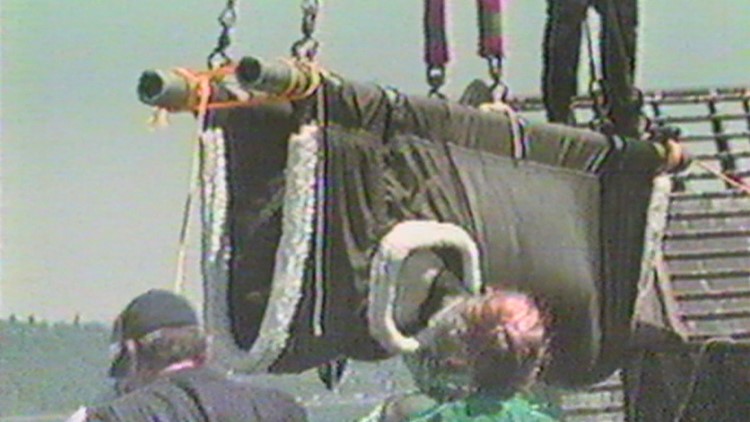The same equipment used in the last live capture of a killer whale in Puget Sound will be used in the event federal authorities decide to capture ailing Southern Resident orca J50, a whale that's made international headlines.
Over a decade ago, an orphaned killer whale named Springer was captured because she'd grown accustomed to swimming next to ferry boats. Now, that gear is being transported around the San Juan Islands to capture and potentially treat the 3 1/2-year-old Southern Resident orca that’s near death.
"What our role has been to try to help out in this process is that we have the equipment that we used for rescuing Springer. It's the only equipment that's around that can be used to rescue J50," Bob McLaughlin said.
McLaughlin and Project SeaWolf helped spearhead the Springer rescue. The whale was returned to her family group, and since then, she's had two calves. The difference this time is that J50 is so sick she may not survive.
A team is mobilized to capture J50 if she gets lost from her family or strands on a beach. After her capture, they plan to diagnose what's ailing her and hopefully return her to the wild.
Though critics have started a petition to stop the intervention, McLaughlin believes it's the best option for the future of the endangered Southern Resident orcas.
"If Springer has happened today, I don't think Springer would've happened. I don't think she would have been successfully rehabilitated. An awful lot of opinions went in there,” said McLaughlin. “There were a lot of people saying, and some people I respect immensely, said ‘no. Let nature take care of itself.’ If that had happened, Springer would have died. She needed medical assistance. She needed to be fed."
For McLaughlin, J50 could hold the key to rehabilitating the fragile orca population, which has diminished to just 75 whales with only a dozen reproducing.
"Specifically, about the Southern Residents, I think it could be very important. If there is something with J50 that we identify that is a pathogen that could go through the southern residence, this could be really a good thing," McLaughlin said. "J50 has the chance to either save the Southern Residents or to kill them. If we don't find out what's going on with her, that might come back to bite us in the butt."




